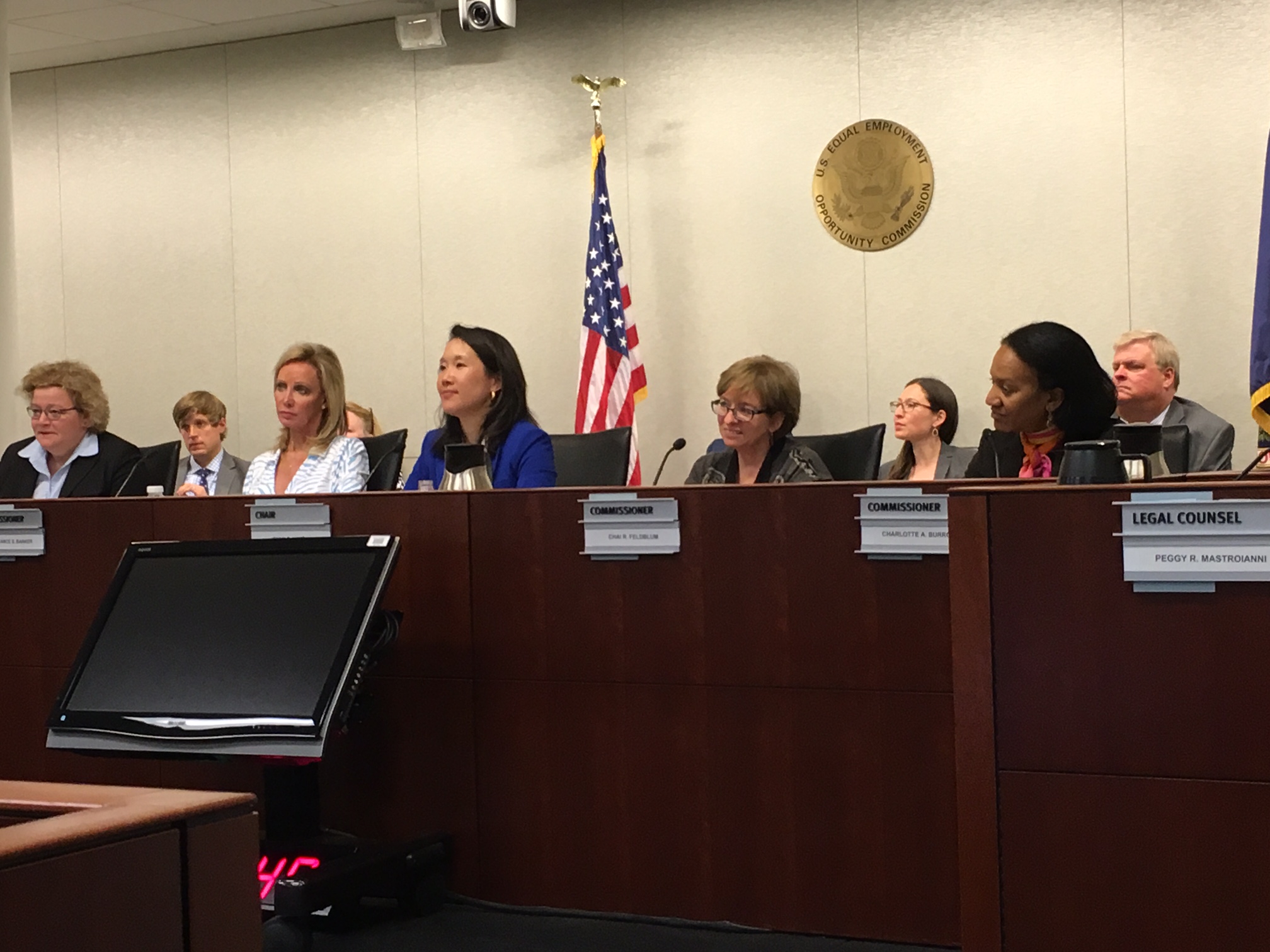![EEOC-commission.jpeg [image : 84559482]](http://www.gannett-cdn.com/media/2016/05/18/USATODAY/USATODAY/635991894189939606-EEOC-commission.jpeg)
WASHINGTON — Minorities and women are under-represented within the burgeoning tech industry, particularly in Silicon Valley, says a federal report out Wednesday.
Overall, high-tech companies have fewer women, African-Americans and Hispanics on the payroll, on average, when compared to private firms, said Ronald Edwards, director of the Equal Employment Opportunity Commission's program research and surveys division. He briefed the commission on the report's findings during a hearing here today.
As employees try to move up the industry ladder, barriers often prevent those moves, the EEOC finds. "The distribution ... suggests a pattern where women and non-white employment decreases as the job group increases from technicians up to executives," Edwards said.
The report and today's hearing is an extraordinary focus on the problem for the EEOC. Commission Chair Jenny Yang noted that a decade ago the EEOC similarly looked at hiring in the financial industry. The tech employment market is similar because the jobs pay well and have good benefits, she said.
"Expanding diversity is critical to unlocking the full potential of tomorrow's economy. Standing still is not an option," Yang said. "Making progress in expanding opportunity in the high tech industry is critical to strengthening our economy and reducing inequality in our communities."
Among the findings in the EEOC's Diversity in High Tech report: Tech companies had more white employees (69%) than the average hired by all firms (64%) and more Asian-Americans (14% vs. 5.8%), according to the report based on 2014 data filed with the EEOC by private U.S. firms with 100 or more employees and federal contractors with 50 or more with federal contracts of $50,000 or more.
![EEOC to hold rare public hearing on tech diversity [oembed : 84556780] [oembed : 84556780] [oembed : 84556780] [oembed : 84556780] [oembed : 84556780] [oembed : 84556780] [oembed : 84556780] [oembed : 84556780] [oembed : 84556780] [oembed : 84556780]](/Portals/_default/Skins/PrestoLegacy/CommonCss/images/smartembed.png)
But high tech fell behind in hiring African Americans with 7%, compared to 14% in all industries, and with Hispanics (8% vs. 13.9%) and women (36% vs. 48%).
When it comes to executive high tech jobs, whites held 83%, while African-Americans hold just 2%, Hispanics 3%, and Asian-Americans 10.5%. Women hold 20% of high tech executive posts.
In Silicon Valley, tech firms' lack of diversity is magnified. Women, Hispanics and African-Americans make up 30%, 6% and 3% of the employees in the top 75 tech firms, respectively, the report found. But in non-tech firms in the area, women hold 49% of the jobs and Hispanics 22% and African-Americans, 24%. Asian-Americans, who hold 41% of jobs in Silicon Valley's top tech firms, make up 24% of the non-tech job force.
The male-dominated nature of Silicon Valley was on full display at the Google I/O keynote presentation in Mountain View, Calif., today despite organizers' efforts to increase the number of women and underrepresented minorities at the conference.
"Despite rapid transformation in the field, the overwhelming dominance of white men in the industries and occupations associated with technology has remained," the report said.
Women and minorities would be better served if computer science was available in more public schools, said Kweilin Ellingrud, a partner at consulting firm McKinsey & Company, told the panel. Three-quarter of U.S. public schools don't offer such classes, she said.
With a pending gap of 1.4 million computing jobs expected in 2020 -- and only an estimated 400,000 skilled U.S. workers available to fill them -- women and minorities "could be a big part of the solution," she said.
Older workers are also being discriminated against in tech hiring practices that prefer "digital natives" and leave older workers "persona non grata," said Laurie McCann, a senior attorney with the AARP.
By pushing for increased inclusion in hiring, the EEOC has "an opportunity for a moon shot in the area of inclusion," said Ben Jealous, a partner at venture capital firm Kapor Capital and former president and CEO of the NAACP. He urged the commission to "take this issue, this threat to our national competitiveness seriously, and ... to champion inclusion (of) race, gender, age, just inclusion period in the hiring in tech."
Follow Mike Snider on Twitter: @MikeSnider


